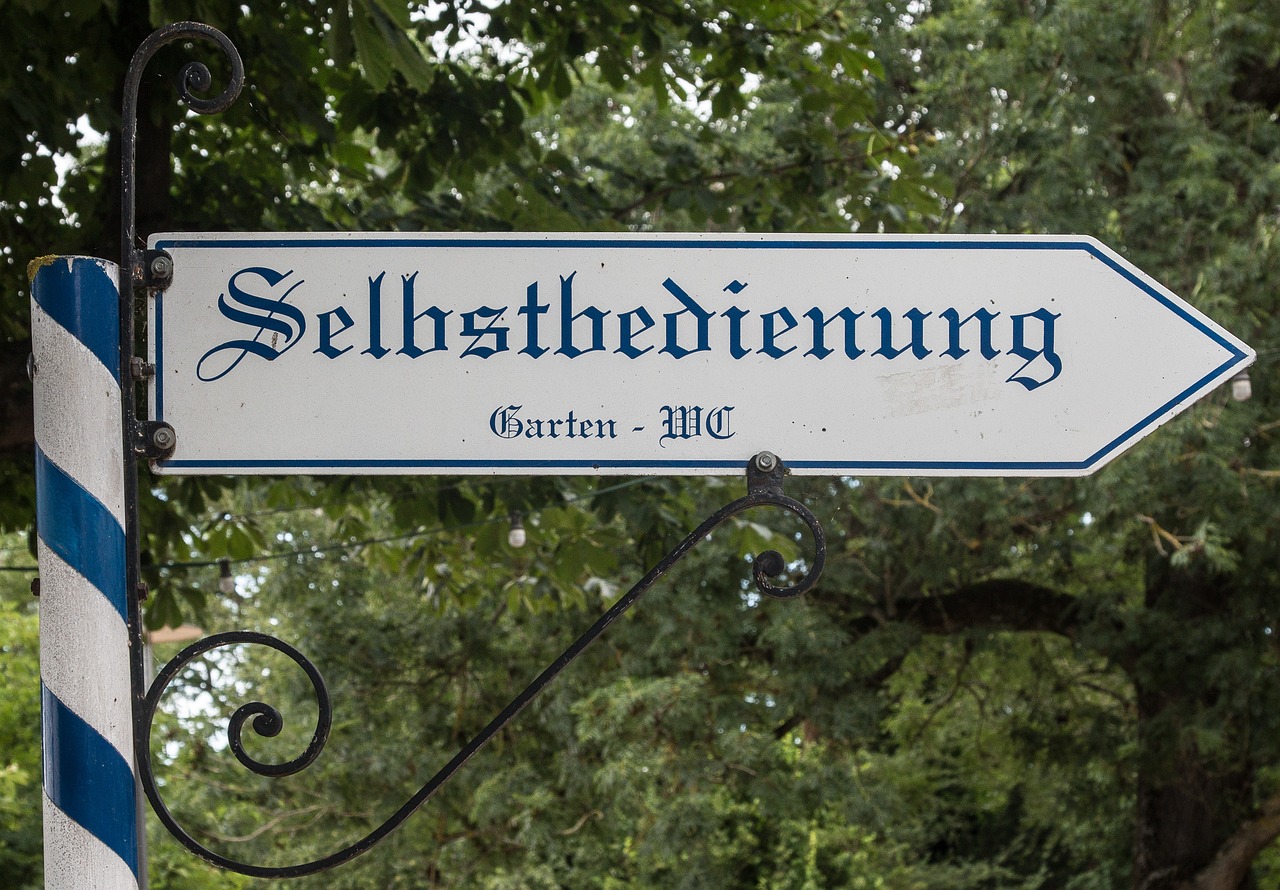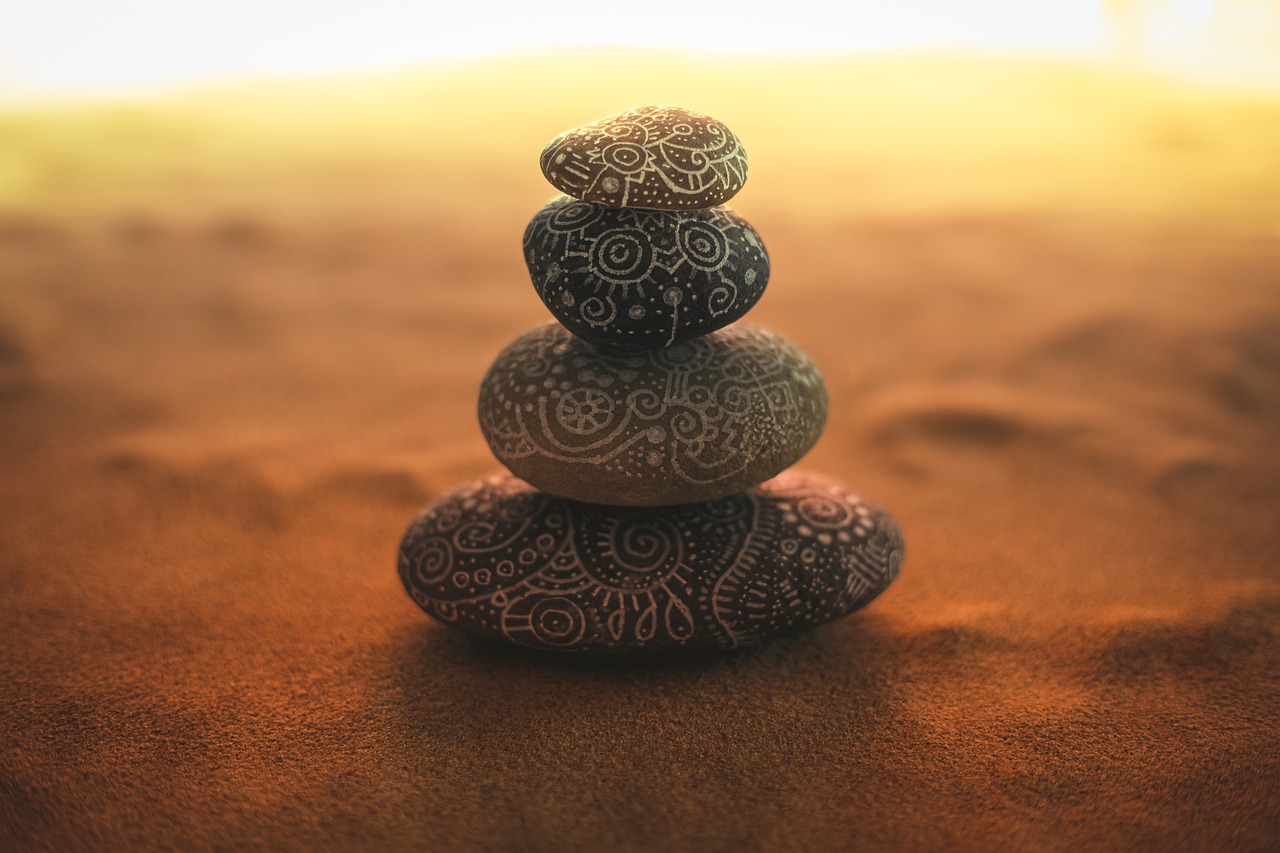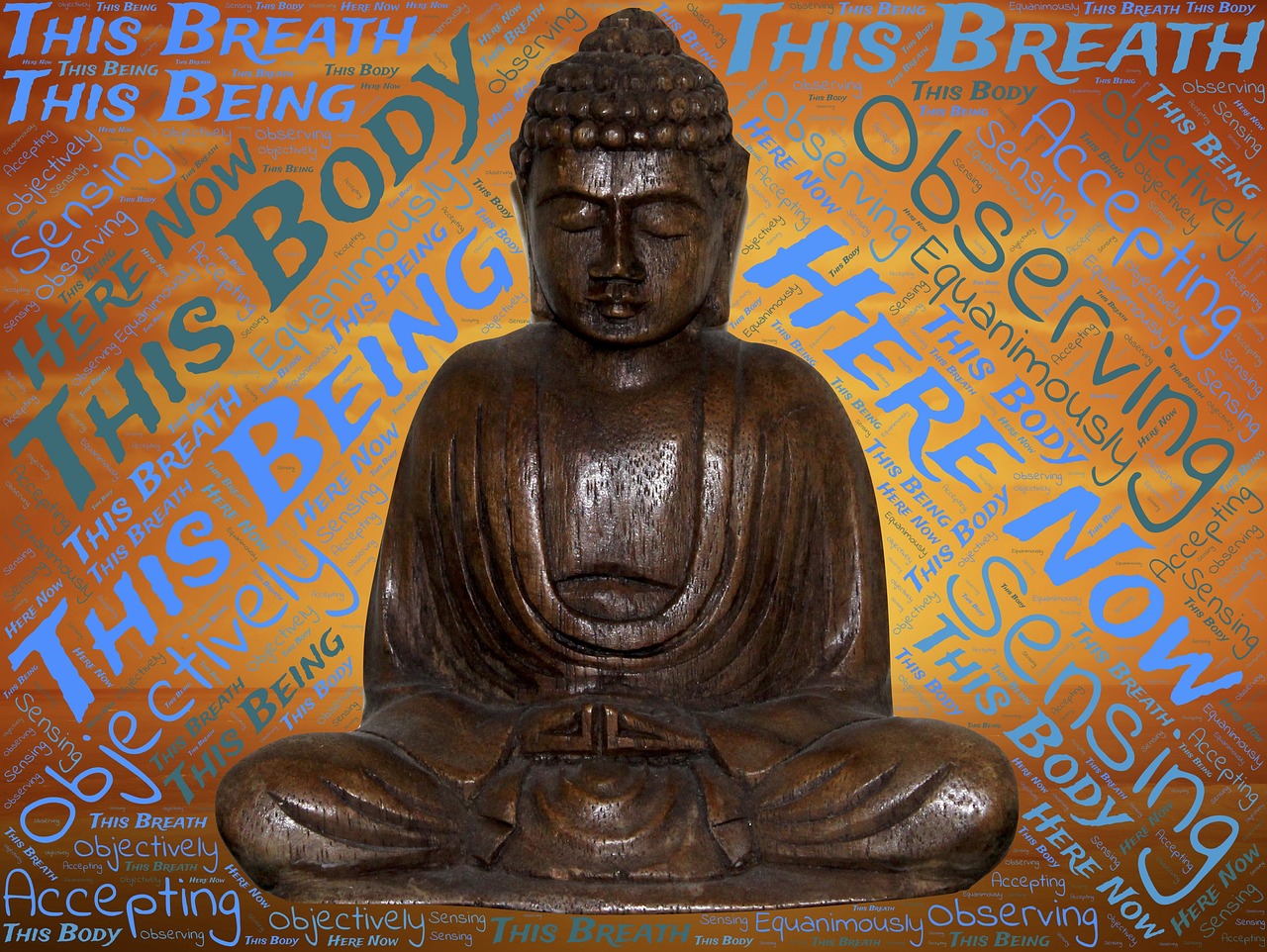The Journey from Unconscious to Conscious
Have you ever felt like you were just going through the motions of life, acting on autopilot without really thinking about what you were doing? This phenomenon is more common than you might think. The journey from unconscious behavior to conscious awareness is not just a personal quest; it's a universal experience that can lead to profound transformation. In this article, we'll explore the stages of this journey, the benefits of embracing a conscious mindset, and practical techniques to help you awaken to a more mindful existence.
Unconscious behavior often dictates our actions without our awareness, like a shadow lurking behind us, influencing our decisions and interactions. It can stem from various sources, including ingrained habits, societal expectations, and emotional triggers. Understanding the origins and characteristics of these unconscious patterns is the first step toward reclaiming your power. Imagine being in a car with a blindfold on, trusting that the driver knows the route. That driver represents your unconscious mind, navigating through life while you remain unaware of the destination. It's time to take off that blindfold and take the wheel!
The importance of consciousness cannot be overstated. When we become aware of our thoughts, feelings, and behaviors, we gain the ability to make informed choices that align with our true selves. It's like switching from a black-and-white TV to a vibrant, high-definition screen—everything becomes clearer, and you can appreciate the details that were once hidden. Developing a conscious mindset not only enhances personal growth but also enriches our relationships, allowing us to connect with others on a deeper level. But how do we embark on this journey? Let's dive into some self-awareness techniques that can guide us along the way.
Developing self-awareness is crucial in the journey to consciousness. Think of it as shining a flashlight into the dark corners of your mind. Techniques such as mindfulness, journaling, and meditation can illuminate these areas, revealing unconscious patterns and fostering personal insight. Mindfulness practices, for example, help ground us in the present moment, allowing us to observe our thoughts and feelings without judgment. This can be as simple as taking a few deep breaths or engaging in a body scan meditation, where you mentally check in with each part of your body. By doing so, you become more attuned to your internal state and can respond to life with greater clarity.
Mindfulness is not just a buzzword; it's a powerful tool for transformation. Engaging in mindfulness exercises can facilitate the transition from unconscious to conscious living. Here are a few practices to consider:
- Breath Awareness: Focus on your breath for a few minutes each day. Notice the sensations of inhaling and exhaling.
- Body Scan: Lie down comfortably and mentally scan your body from head to toe, noticing any tension or discomfort.
- Mindful Eating: Savor each bite of your meal, paying attention to the flavors and textures.
Journaling serves as a powerful tool for reflection and self-discovery. It's like having a conversation with yourself on paper. Writing can illuminate unconscious patterns, helping you to recognize recurring themes in your thoughts and behaviors. By putting pen to paper, you can uncover insights that might remain hidden in the chaos of daily life. Set aside time each day to jot down your thoughts, feelings, and experiences. Over time, you may notice shifts in your perspective and a deeper understanding of your motivations.
Resistance to change is a common barrier in the journey to consciousness. It's that nagging voice in your head that says, "Why bother? It's too hard!" Psychological factors, such as fear of the unknown or comfort in familiar routines, can contribute to this resistance. However, recognizing these barriers is the first step in overcoming them. Embrace the discomfort that comes with growth, and remember that every journey has its challenges. Strategies such as seeking support from others, setting small, achievable goals, and practicing self-compassion can help you navigate through these obstacles.
Living consciously offers numerous benefits that can enhance every aspect of your life. From improved decision-making to healthier relationships, the positive outcomes of embracing a conscious lifestyle are profound. When you're aware of your thoughts and actions, you can respond thoughtfully rather than react impulsively. This leads to better emotional regulation, allowing you to handle stress and challenges with grace.
Conscious living fosters deeper connections with others. When you engage with the world around you mindfully, you cultivate a sense of presence that can transform interpersonal dynamics. Imagine being fully present in a conversation, listening intently without distractions. This level of awareness promotes empathy and understanding, allowing you to connect with others on a more meaningful level.
The journey to consciousness can lead to better mental health. Studies have shown a correlation between conscious awareness and reduced anxiety, depression, and stress levels. By becoming more attuned to your thoughts and feelings, you can identify negative patterns and replace them with healthier alternatives. It's like tending to a garden; with regular care and attention, you can cultivate a flourishing mental landscape.
Q: What is unconscious behavior?
A: Unconscious behavior refers to actions and reactions that occur without our awareness, often influenced by habits, emotions, and societal norms.
Q: How can I become more conscious?
A: Techniques such as mindfulness, journaling, and meditation can help increase your self-awareness and promote conscious living.
Q: What are the benefits of conscious living?
A: Benefits include improved decision-making, emotional regulation, deeper relationships, and enhanced mental health.

Understanding Unconscious Behavior
Unconscious behavior is like an unseen puppeteer, pulling the strings of our actions without us even realizing it. It often stems from deep-seated beliefs, past experiences, and societal conditioning that we absorb over time. Think of it as the software running in the background of our minds, influencing decisions, reactions, and interactions without our conscious awareness. For many, this unconscious behavior can lead to patterns that repeat, sometimes even sabotaging our goals and desires.
To better grasp this concept, consider the following characteristics of unconscious behavior:
- Automatic Responses: Many of our reactions are instinctive, driven by emotions rather than rational thought.
- Habitual Patterns: Unconscious behaviors often manifest as habits, making them challenging to change without deliberate effort.
- Influence of Environment: Our surroundings heavily influence our unconscious behaviors, from social norms to cultural expectations.
These characteristics reveal how unconscious behavior can dictate our daily lives. Imagine you're driving a car on autopilot; you might arrive at your destination without remembering the journey. Similarly, we often navigate life without reflecting on our actions, leading to a disconnect between our true selves and our behavior.
Moreover, unconscious behavior significantly impacts our decision-making processes. For instance, when faced with a choice, we might default to familiar patterns that don't necessarily serve us well. This can lead to feelings of frustration or dissatisfaction when we realize we're not progressing toward our goals. By understanding where these behaviors originate, we can start to unravel the layers of our unconscious mind.
Perhaps the most surprising aspect of unconscious behavior is how it can affect our relationships. Often, we engage in patterns of communication or conflict resolution that stem from unconscious beliefs about ourselves and others. For example, someone who unconsciously believes they are unworthy may push loved ones away, creating a cycle of isolation. Recognizing these patterns is the first step toward cultivating healthier, more conscious interactions.
In summary, understanding unconscious behavior is crucial for anyone looking to embark on a journey toward greater consciousness. By shining a light on these hidden influences, we can begin to make more informed choices, break free from detrimental habits, and ultimately lead a more fulfilling life.

The Importance of Consciousness
Consciousness is not just a buzzword; it’s the very essence of our existence. When we talk about being conscious, we refer to the ability to be aware of our thoughts, feelings, and surroundings. Imagine driving a car on autopilot—you're moving, but are you truly in control? This analogy captures the essence of unconscious behavior versus conscious living. By developing a conscious mindset, we unlock the potential to make informed choices that reflect our true desires and values.
Understanding the importance of consciousness is pivotal for personal growth and the enhancement of our relationships. When we cultivate awareness, we start to recognize our motivations and the underlying reasons behind our actions. This self-awareness is like turning on a light in a dark room; suddenly, everything becomes clearer. We can identify patterns that may have been holding us back, and we can choose to break free from them. The process of becoming conscious allows us to:
- Make Better Decisions: When we are aware of our thoughts and emotions, we can evaluate our choices more critically, leading to decisions that align with our true selves.
- Enhance Emotional Regulation: Consciousness helps us identify our emotional triggers, enabling us to respond rather than react, which is essential for maintaining our mental health.
- Improve Relationships: Being present and aware fosters deeper connections with others, as we become more empathetic and understanding.
Moreover, embracing consciousness can significantly impact our overall well-being. It’s like switching from a black-and-white television to a high-definition screen; the clarity and vibrancy of life become more pronounced. When we live consciously, we engage with our experiences fully, which leads to a more fulfilling and enriched life. The ability to pause and reflect allows us to appreciate the small moments that often go unnoticed, enhancing our overall happiness.
Additionally, consciousness opens the door to personal growth. It encourages us to question our beliefs and assumptions, pushing us towards continuous improvement. This journey is not always easy; it requires effort and dedication. However, the rewards are immeasurable. By fostering a conscious mindset, we can transform our lives and the lives of those around us.
In essence, the importance of consciousness cannot be overstated. It is the foundation upon which we build our lives. The journey from unconsciousness to consciousness is one of empowerment, leading to a life filled with intention and purpose. So, ask yourself: Are you ready to take the wheel and steer your life in the direction you truly desire?
- What is consciousness? Consciousness refers to the state of being aware of and able to think about one’s own existence, thoughts, and surroundings.
- How can I develop consciousness? Techniques such as mindfulness, meditation, and journaling can significantly enhance your self-awareness and conscious living.
- What are the benefits of living consciously? Benefits include improved decision-making, better emotional regulation, and enhanced relationships.

Self-Awareness Techniques
Embarking on the journey to consciousness is like peeling an onion; it requires patience, vulnerability, and a willingness to confront layers of yourself that you may have long ignored. One of the key components of this journey is self-awareness, which is essentially the ability to recognize and understand your own thoughts, emotions, and behaviors. This awareness acts as a mirror, reflecting not only who you are but also who you can become. So, how do we cultivate this precious self-awareness? Here are a few techniques that can illuminate the path.
Mindfulness is one of the most effective techniques for enhancing self-awareness. It involves being fully present in the moment, paying attention to your thoughts and feelings without judgment. Imagine you’re sitting in a bustling café; instead of getting lost in the noise, you focus on the aroma of your coffee, the warmth of the cup in your hands, and the sensations in your body. This practice helps you tune into your internal landscape, making it easier to recognize patterns in your behavior.
Another powerful tool is journaling. Writing down your thoughts and feelings can be a cathartic process that reveals unconscious patterns. Think of your journal as a safe space where you can spill your thoughts onto the page without fear of judgment. You might consider creating prompts for yourself, such as:
- What emotions did I feel today, and what triggered them?
- What decisions did I make, and what motivated those choices?
- How did I react in challenging situations, and why?
By revisiting these entries, you can start to see connections and recurring themes that can guide you toward greater self-understanding.
Finally, meditation serves as a cornerstone for many seeking self-awareness. It’s like a workout for your mind. Just as lifting weights strengthens your muscles, meditation strengthens your mind's ability to focus and observe. Even a few minutes of daily meditation can help you clear mental clutter and gain insights into your thoughts and feelings. As you sit in silence, you might find that your mind wanders; this is a normal part of the process. The key is to gently guide your focus back to your breath, creating a habit of awareness that spills over into your daily life.
In summary, developing self-awareness is a multifaceted endeavor that can significantly enhance your journey toward consciousness. By incorporating mindfulness, journaling, and meditation into your daily routine, you create a rich tapestry of self-discovery that can transform your understanding of yourself and your place in the world.
Q: What is self-awareness?
A: Self-awareness is the ability to recognize and understand your own thoughts, emotions, and behaviors. It allows you to see yourself more clearly and make informed choices.
Q: How can mindfulness improve self-awareness?
A: Mindfulness helps you stay present and aware of your thoughts and feelings without judgment, allowing for greater insight into your behavior and motivations.
Q: Is journaling necessary for self-awareness?
A: While journaling is a powerful tool for self-reflection, it’s not the only way to develop self-awareness. Techniques like mindfulness and meditation can also be highly effective.
Q: How long should I meditate to see results?
A: Even a few minutes of meditation each day can lead to increased self-awareness over time. Consistency is more important than duration.

Mindfulness Practices
Mindfulness practices are like a gentle nudge that pulls us back into the present moment, away from the chaos of our racing thoughts and distractions. Imagine standing on a busy street, overwhelmed by the noise and movement around you. Now, picture stepping back into a quiet park where you can hear the rustle of leaves and feel the warmth of the sun on your skin. That’s what mindfulness does; it creates a serene space in our minds where we can truly connect with our surroundings and ourselves.
At its core, mindfulness is about awareness—awareness of our thoughts, feelings, and sensations without judgment. It’s about noticing what’s happening right now, rather than getting lost in what happened yesterday or what might happen tomorrow. This practice can be as simple as taking a few deep breaths, focusing on the sensations of your body, or observing your thoughts as they come and go like clouds in the sky. By anchoring ourselves in the present, we can cultivate a deeper understanding of our internal landscape.
There are several mindfulness exercises that can help facilitate this transition from unconscious to conscious living. Here are a few effective practices:
- Breath Awareness: Start by sitting comfortably and focusing solely on your breath. Notice the inhalation and exhalation, feeling the air filling your lungs. If your mind starts to wander, gently bring your focus back to your breath.
- Body Scan: Lie down in a comfortable position and mentally scan your body from head to toe. Pay attention to any sensations, tension, or discomfort, acknowledging them without judgment.
- Mindful Walking: Take a walk in nature or around your home, paying attention to each step. Feel the ground beneath your feet, the air on your skin, and the sounds around you. This practice turns a simple walk into a profound experience.
These exercises not only ground us in the present but also help us develop a greater sense of self-awareness. By regularly engaging in mindfulness, we can begin to notice patterns in our thoughts and behaviors that we may have previously overlooked. It’s like turning on a light in a dark room; suddenly, we can see what’s been there all along.
Additionally, incorporating mindfulness into our daily routines can be incredibly beneficial. Whether it’s during a morning coffee, while washing the dishes, or even during a mundane commute, we can find moments to practice being present. The key is to approach these activities with intention and curiosity, transforming them into opportunities for mindfulness.
As we delve deeper into mindfulness, we may encounter challenges along the way. Thoughts may become louder, distractions may arise, and it can be tempting to give up. However, it’s essential to remember that mindfulness is a practice, not a perfection. Each moment spent in awareness is a step toward greater consciousness, and every effort counts. Just like building a muscle, the more we practice, the stronger our mindfulness becomes.
In conclusion, mindfulness practices are powerful tools that can help us cultivate a conscious existence. By embracing these exercises, we open the door to greater self-awareness, emotional regulation, and a more fulfilling life. So, why not take a moment today to pause, breathe, and simply be? After all, the present moment is the only one we truly have.
1. What is mindfulness?
Mindfulness is the practice of being fully present and engaged in the current moment, aware of your thoughts and feelings without judgment.
2. How can I start practicing mindfulness?
You can start by incorporating simple techniques like breath awareness or mindful walking into your daily routine. Just a few minutes a day can make a significant difference.
3. Is mindfulness suitable for everyone?
Yes, mindfulness can benefit anyone, regardless of age or background. It’s a personal practice that can be tailored to individual needs and preferences.
4. How long does it take to see benefits from mindfulness?
The benefits of mindfulness can vary from person to person. Some may notice changes in their mood or stress levels within a few weeks, while others may take longer. Consistency is key!
5. Can mindfulness help with anxiety and stress?
Absolutely! Many studies have shown that mindfulness practices can significantly reduce anxiety and stress, promoting a sense of calm and well-being.

Journaling for Reflection
Journaling is more than just putting pen to paper; it's a transformative practice that opens the door to self-discovery and reflection. Imagine your mind as a cluttered room, filled with thoughts, emotions, and experiences stacked high like boxes. Journaling acts as a broom, sweeping away the mental debris and allowing you to see clearly what’s inside. When you take the time to write down your thoughts, you create a safe space to explore your inner world without judgment. This act of reflection not only helps clarify your feelings but also illuminates patterns of unconscious behavior that you might not even be aware of.
Through journaling, you can begin to untangle the threads of your thoughts and emotions. For instance, consider the following benefits:
- Awareness of Patterns: Regularly writing about your feelings can reveal recurring themes in your life, such as triggers that lead to stress or moments of joy.
- Emotional Release: Expressing your thoughts on paper can serve as a cathartic release, helping to alleviate feelings of anxiety or sadness.
- Clarity of Purpose: By reflecting on your goals and desires, journaling can help you align your actions with your true intentions.
To get started with journaling, you don’t need fancy equipment—just a notebook and a pen will do. However, to maximize the benefits, consider the following tips:
- Set a Regular Time: Choose a specific time each day or week to write, making it a part of your routine.
- Be Honest: Write freely and openly, without worrying about grammar or structure. This is your personal space.
- Reflect on Prompts: Use journaling prompts to guide your writing. Questions like “What made me happy today?” or “What challenges did I face?” can spark deeper insights.
As you develop this habit, you may find that your journaling evolves into a powerful tool for self-awareness. You might even discover that certain entries resonate with you more than others, revealing areas of your life that require attention. Over time, this practice can help you shift from a state of unconsciousness to a more conscious existence, where you’re not just reacting to life but actively participating in it.
In conclusion, journaling for reflection is a simple yet profound practice that can significantly enhance your journey toward consciousness. It allows you to peel back the layers of your mind, confront your emotions, and ultimately gain a better understanding of yourself. So, grab that notebook and start writing; you might just uncover the insights you’ve been searching for.
- How often should I journal? It's best to journal regularly, whether daily or weekly, to maintain consistency and deepen your self-reflection.
- What if I don't know what to write about? Start with prompts, such as your feelings about the day, a significant event, or even a simple gratitude list.
- Can journaling really help with mental health? Yes, many people find that journaling helps reduce anxiety and stress by providing an outlet for their thoughts and emotions.

Overcoming Resistance
Resistance to change is a natural human reaction. Imagine trying to push a boulder uphill; it takes effort, and often, the boulder seems to have a mind of its own, rolling back down every time you make progress. This is precisely how our minds can work when faced with the prospect of becoming more conscious. Resistance can stem from a variety of psychological factors, such as fear of the unknown, comfort in routine, or even a lack of self-belief. Understanding these factors is the first step in overcoming them.
One way to combat this resistance is to acknowledge it. Recognizing that you are feeling resistant is like shining a light on the boulder; it makes it less intimidating. Instead of pushing against it, you can start to examine why it’s there. Ask yourself questions like: What am I afraid of losing? What would my life look like if I embraced change? These questions can serve as a mirror, reflecting your internal struggles and helping you gain clarity.
Another effective strategy is to break the journey into smaller, manageable steps. Instead of envisioning a complete transformation overnight, focus on incremental changes. For instance, if you want to become more mindful, consider starting with just five minutes of meditation each day. As you gradually increase your practice, you’ll find that the boulder becomes easier to push. Here’s a simple table to illustrate how breaking down goals can help:
| Goal | Initial Step | Next Steps |
|---|---|---|
| Practice Mindfulness | 5 minutes of meditation | Increase to 10 minutes, then 15 minutes |
| Improve Self-Awareness | Journal for 5 minutes | Expand to daily journaling |
| Enhance Relationships | Practice active listening in one conversation | Apply in multiple interactions |
Additionally, surrounding yourself with supportive individuals can make a world of difference. When you share your goals and aspirations with friends or family, you’re not just voicing your intentions; you’re inviting them to join you on your journey. Their encouragement can serve as a powerful motivator, helping you to push through the resistance. Think of it as having a team to help you navigate the uphill battle, making the journey feel less isolating and more collaborative.
Lastly, it’s essential to practice self-compassion. Change is hard, and setbacks are a part of the process. Treat yourself with kindness when you encounter resistance, just as you would for a friend. Remind yourself that it’s okay to struggle and that every step, no matter how small, is a step toward greater consciousness. Remember, even the smallest flicker of awareness can illuminate the darkest corners of resistance.
- What are some common signs of resistance? Resistance can manifest as procrastination, negative self-talk, or a consistent feeling of discomfort when faced with change.
- How can I stay motivated during my journey to consciousness? Setting small, achievable goals and celebrating your progress can help maintain motivation. Additionally, surrounding yourself with supportive individuals can provide encouragement.
- Is it normal to feel overwhelmed when trying to become more conscious? Absolutely! Many people experience feelings of overwhelm. It’s important to take things one step at a time and practice self-compassion.

Benefits of Conscious Living
Living consciously is akin to stepping into a vibrant world filled with color and clarity, where every decision is made with intention and awareness. When we embrace this lifestyle, we unlock a treasure trove of benefits that ripple through various aspects of our lives. Imagine waking up each day with a sense of purpose, fully aware of your thoughts and actions. This is the essence of conscious living. It allows us to break free from the autopilot mode that often governs our daily routines, leading to a more fulfilling and enriched existence.
One of the most significant benefits of conscious living is improved decision-making. When we are aware of our motivations and the consequences of our choices, we can make informed decisions that align with our values and goals. This clarity helps us avoid impulsive actions that we might later regret. For instance, instead of mindlessly scrolling through social media, we might choose to engage in activities that nurture our well-being, such as reading a book or going for a walk. This shift in perspective not only enhances our daily experiences but also fosters a deeper connection with ourselves.
Moreover, conscious living promotes emotional regulation. By being aware of our emotions and understanding their triggers, we can respond to situations more thoughtfully rather than reacting impulsively. This self-awareness acts as a buffer against stress and anxiety, allowing us to navigate life's challenges with greater resilience. When faced with a difficult situation, instead of succumbing to panic or frustration, we can take a step back, assess the situation, and choose a response that is constructive and aligned with our values.
Additionally, the benefits of conscious living extend to our relationships. When we cultivate awareness, we become more present and engaged with those around us. This presence fosters deeper connections, as we listen actively and respond with empathy. Imagine having conversations where both parties feel heard and valued; this is the power of conscious communication. As we practice being fully present, our relationships transform, leading to greater understanding and intimacy. The ability to empathize with others enhances our social interactions, making them more meaningful and enriching.
In a world where distractions abound, conscious living serves as a compass, guiding us toward healthier choices and relationships. It encourages us to prioritize self-care and well-being, leading to a more balanced and harmonious life. When we live consciously, we become more attuned to our needs, allowing us to make choices that nourish our minds, bodies, and spirits. This holistic approach to living not only benefits us individually but also contributes to a more compassionate and understanding society.
To summarize, the journey towards conscious living is filled with remarkable benefits, including:
- Improved Decision-Making: Making choices that align with our true selves.
- Emotional Regulation: Responding thoughtfully rather than reacting impulsively.
- Enhanced Relationships: Building deeper connections through presence and empathy.
- Overall Well-Being: Prioritizing self-care and living a balanced life.
By embracing these benefits, we not only enhance our own lives but also contribute positively to the lives of those around us. The journey from unconscious to conscious living is transformative, and the rewards are well worth the effort.
Q: What is conscious living?
A: Conscious living is a lifestyle that emphasizes awareness and intentionality in our thoughts, actions, and decisions. It encourages us to be present in the moment and make choices that align with our values.
Q: How can I start living more consciously?
A: You can begin by practicing mindfulness, journaling your thoughts, and reflecting on your daily choices. Small changes, like taking a moment to breathe before reacting, can make a significant difference.
Q: What are the long-term benefits of conscious living?
A: Long-term benefits include improved mental health, better relationships, enhanced emotional regulation, and a greater sense of purpose and fulfillment in life.

Enhanced Relationships
When we embark on the journey of conscious living, one of the most remarkable transformations occurs in our relationships. Imagine upgrading your connection with others from a standard definition to high definition—everything becomes clearer, richer, and more vibrant. This shift toward consciousness fosters deeper connections, enabling us to truly engage with those around us. By being present and aware, we open ourselves up to understanding others on a more profound level, which can significantly enhance our interpersonal dynamics.
Think about it: how often do we find ourselves distracted during conversations, scrolling through our phones or letting our minds wander? This unconscious behavior can create a disconnect, leaving our relationships feeling superficial. However, when we practice being fully present, we not only improve our ability to listen but also show genuine interest in what others are saying. This active engagement can lead to more meaningful exchanges, where empathy and understanding flourish.
Moreover, conscious living encourages us to communicate more authentically. By understanding our own feelings and motivations, we can express ourselves clearly and honestly, which reduces the chances of misunderstandings. For instance, when conflicts arise, a conscious individual is more likely to approach the situation with a calm demeanor, seeking to understand rather than react impulsively. This shift in communication style can transform conflicts into opportunities for growth and connection.
To illustrate the impact of conscious living on relationships, consider the following table that highlights key differences between unconscious and conscious interactions:
| Aspect | Unconscious Interactions | Conscious Interactions |
|---|---|---|
| Listening | Distracted and passive | Active and engaged |
| Communication | Reactive and defensive | Open and authentic |
| Conflict Resolution | Avoidance or escalation | Understanding and collaboration |
| Empathy | Surface-level understanding | Deep emotional connection |
In essence, when we live consciously, we cultivate an environment where empathy thrives. This not only strengthens our existing relationships but also attracts new connections that are based on mutual respect and understanding. It's like planting a garden; the more you nurture it with awareness and care, the more it blossoms into a beautiful array of relationships that enrich your life.
Ultimately, enhancing our relationships through conscious living is about being intentional. It’s about making the choice to engage fully, to listen deeply, and to respond with love and understanding. By doing so, we create a ripple effect that can transform not just our lives but also the lives of those around us, fostering a community built on connection and empathy.
As we continue to explore the benefits of conscious living, let’s not forget the importance of nurturing these relationships. After all, they are the threads that weave the fabric of our lives, bringing joy, support, and fulfillment.
- What does it mean to live consciously?
Living consciously means being aware of your thoughts, feelings, and actions in the present moment. It involves making intentional choices rather than reacting automatically.
- How can I improve my relationships through conscious living?
By practicing active listening, communicating authentically, and being present during interactions, you can deepen your connections with others.
- Why is self-awareness important for relationships?
Self-awareness allows you to understand your own emotions and triggers, which helps you respond thoughtfully in interactions, reducing misunderstandings.

Improved Mental Health
Embarking on the journey from unconscious to conscious living can have a profound impact on our mental health. When we become more aware of our thoughts, feelings, and behaviors, we are better equipped to manage them. This newfound awareness allows us to identify negative patterns that may have been lurking in the shadows of our minds, dictating our emotional states and reactions without our consent. Imagine your mind as a cluttered attic; once you shine a light into it, you can see the chaos and begin to organize it. This is exactly what conscious living does for our mental well-being.
Research shows that individuals who practice mindfulness and self-awareness techniques often experience lower levels of anxiety, depression, and stress. By recognizing the triggers that lead to these overwhelming feelings, we can develop healthier coping mechanisms. For instance, when we become conscious of our thoughts, we can challenge negative self-talk and replace it with positive affirmations. This process not only boosts our self-esteem but also fosters resilience in the face of adversity.
Furthermore, the practice of mindfulness encourages us to be present, which can significantly reduce rumination—a common contributor to mental health issues. When we focus on the here and now, we are less likely to dwell on past mistakes or worry about future uncertainties. This shift in focus can create a sense of calm and clarity, helping us navigate life's challenges with a more balanced perspective.
To illustrate the benefits of improved mental health through conscious living, consider the following table that highlights the positive outcomes:
| Benefit | Description |
|---|---|
| Reduced Anxiety | Mindfulness practices help individuals manage anxiety by promoting relaxation and present-moment awareness. |
| Lower Depression Rates | Increased self-awareness can lead to recognizing and altering negative thought patterns associated with depression. |
| Enhanced Emotional Regulation | Conscious living fosters better control over emotions, enabling individuals to respond rather than react impulsively. |
| Stress Reduction | Mindfulness techniques can lower stress levels by encouraging a focus on the present and reducing worry. |
In addition to these benefits, conscious living promotes a sense of purpose and fulfillment. When we are aware of our thoughts and actions, we can align them with our values and goals. This alignment not only boosts our motivation but also enhances our overall life satisfaction. It’s like steering a ship; when you know your destination, navigating through rough waters becomes easier and more purposeful.
Ultimately, the journey to improved mental health through conscious living is a continuous process. It requires patience, practice, and a willingness to confront uncomfortable truths about ourselves. However, the rewards—better relationships, enhanced emotional resilience, and a deeper understanding of our own minds—are well worth the effort. As we cultivate consciousness, we not only transform our own lives but also positively impact those around us, creating a ripple effect of awareness and compassion.
- What is conscious living? Conscious living refers to being aware of our thoughts, feelings, and actions, making intentional choices that align with our values.
- How can mindfulness improve mental health? Mindfulness helps reduce anxiety and stress by promoting present-moment awareness and emotional regulation.
- What techniques can enhance self-awareness? Techniques such as journaling, meditation, and mindfulness exercises can significantly boost self-awareness.
- Is the journey to consciousness difficult? While it can be challenging, the benefits of improved mental health and personal growth make it a worthwhile endeavor.
Frequently Asked Questions
- What is unconscious behavior?
Unconscious behavior refers to actions and decisions made without awareness or deliberate thought. It often stems from ingrained habits, societal conditioning, or emotional triggers that operate below our conscious awareness.
- Why is developing consciousness important?
Developing consciousness allows us to make informed choices, understand our motivations, and enhance personal growth. It helps us break free from automatic responses, leading to healthier relationships and improved decision-making.
- What are some techniques to enhance self-awareness?
Techniques like mindfulness meditation, journaling, and reflective practices can significantly boost self-awareness. These practices help you identify unconscious patterns, understand your emotions, and foster personal insight.
- How can mindfulness practices help in daily life?
Mindfulness practices ground you in the present moment, reducing stress and enhancing focus. By incorporating mindfulness into your daily routine, you can improve your emotional regulation and overall well-being.
- What role does journaling play in self-discovery?
Journaling serves as a powerful tool for reflection, allowing you to explore your thoughts and feelings. Writing can reveal unconscious patterns and beliefs, helping you gain clarity and foster greater consciousness.
- How can I overcome resistance to change?
Overcoming resistance often involves recognizing the psychological factors at play, such as fear of the unknown. Strategies like setting small goals, seeking support, and practicing self-compassion can help you navigate this resistance.
- What are the benefits of conscious living?
Conscious living offers numerous benefits, including enhanced decision-making, better emotional regulation, and healthier relationships. It promotes a deeper understanding of oneself and fosters a more meaningful connection with others.
- How does conscious living improve relationships?
Conscious living encourages awareness and presence, which can transform interpersonal dynamics. By being more attuned to others, you can cultivate empathy, understanding, and deeper connections in your relationships.
- Can conscious awareness impact mental health?
Yes! The journey to consciousness is linked to better mental health outcomes. Increased awareness can help reduce anxiety, depression, and stress, leading to a more balanced emotional state.



















